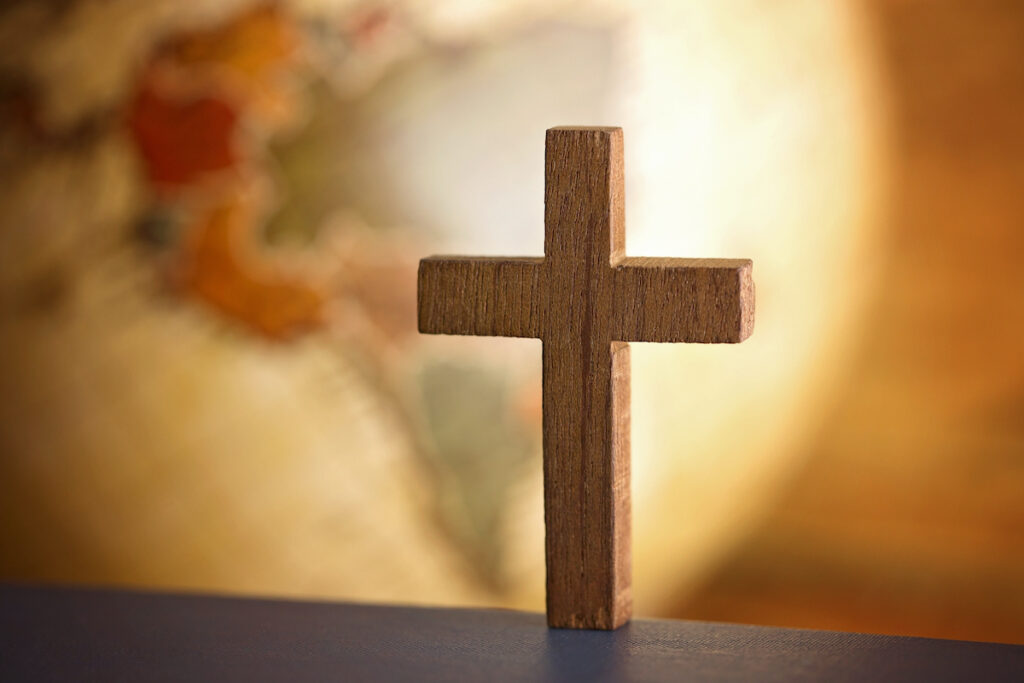Recent statistics indicate that more than 50% of the population has been affected by the coronavirus either directly or indirectly. Thankfully, no one in our family has been a victim of the disease.
However, one daughter has been furloughed, a son laid off, and high school graduation was postponed for one of our granddaughters. All of these were short-lived. Our son who was laid off got a better job, our daughter is scheduled to return to work by August and a new graduation date has been set for high school seniors in Florida.
In retrospect, the most unexpected and difficult adjustment is not being able to receive daily Eucharist. Not being able to participate in person has been a hardship, and yet attending Mass online has also been a blessing.
During the past weeks, my husband and I have been able to reap the spiritual benefits of the many charisms bestowed upon religious orders within the Catholic Church. Via YouTube, we’ve attended Mass celebrated by Carmelite priests in the basilica at their monastery in Holy Hill, Wisconsin.
We’ve watched the Jesuits celebrate Mass and preach from a chapel in Canada, joined the Franciscans for Mass at EWTN, and worshiped with diocesan priests — a different presider each day — from the Archdiocese of Boston. On Sundays, we tuned into our home parish, St. Gregory the Great, Virginia Beach, to celebrate with the Benedictines.
While it’s not the same as attending Mass in person, it has given me a greater appreciation for the charisms within the Catholic Church, each founded in response to the needs of the time by saints who God raised up just as he raised us to become.
Not all are called to religious life, but within the context of family life we have a role to play within the domestic Church. For us it’s taken the form of prayerful encouragement during times of unemployment, offering a helping hand during times of financial uncertainty and listening to our 6-year-old granddaughter read a bedtime story to us via Facetime.
It’s not what we do that’s important but the love with which we do it. Whether we are participating in a drive-by birthday celebration or sending a condolence card for a grieving member of the community, joy comes to us when we are involved because not even COVID-19 is able to destroy the bonds of love that unite us as children of God.
As heartbreaking as it is to watch those who have lost family members share the heartache of not having been able to say goodbye, there is comfort in knowing that death is not the end and that one day we will be together with loved ones who have preceded us in death. Until then we can be united with them through prayer.
On one level, life is beginning to return to normal, but I doubt that it will ever be the same. I suspect we will bear the scars of this latest travesty for a while because the presence of a rainbow doesn’t eradicate the ravages of the storm.
However, it does give us hope. Hope allows us to look beyond what seems bleak and know that human nature is resilient because we bear the mark of the resurrection deep within our soul.
As we move forward, we all have a role to play, depending on our life circumstances. I think of my parents who grew up in the shadow of World War II and the Great Depression. They heard about the atrocities inflicted on victims of the Nazi death camps in real time. Yet, they remained steadfast in their faith and found the courage to go forward.
History has shown there has never been an age without horrendous suffering and yet we continue not only to survive and but to thrive. Crises of the past have given rise to greater creative ingenuity.
The problem arises when we lose sight of the fact that every good thing that we do is a gift from God for the good of the world. The tendency to want to take credit for what is clearly not our doing reveals our ignorance.
St. Therese explained that when we take credit for gifts that God has given to us, we are like the donkey who carries relics and thinks the adulation paid by the crowd along the way is meant for him rather than for the saints.
Imagine how different the world would be if we acted more like saints than donkeys. While there’s nothing wrong with donkeys, I’d rather be a saint.

